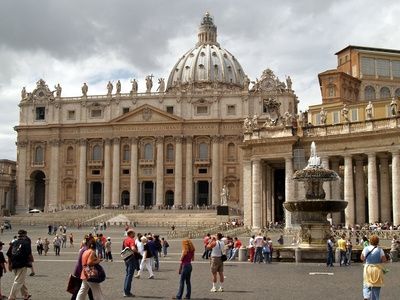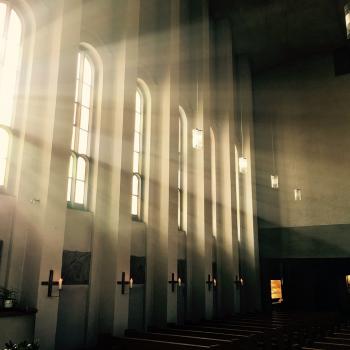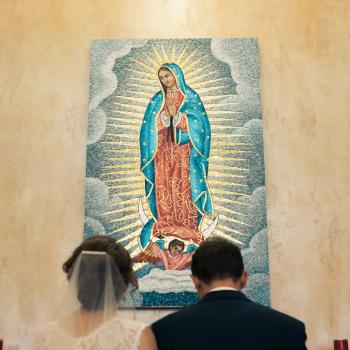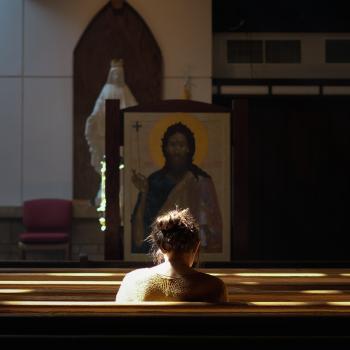This piece by Franciscan friar and blogger Daniel Horan, OFM (“Dating God”) offers some answers that may surprise people:
In 1990 the now-late Jesuit scholar of English literature and philosophy, Walter Ong, S.J., wrote an essay for America magazine that responded to the perennial question for educators in Catholic institutions of higher education: How does such a school incorporate this nebulous concept “catholic identity” into its mission in a tangible way?
Ong’s contribution was to look at the meaning of the word catholic itself to get a better handle on the task at hand. What he revealed bears broader ramifications than simply helping Catholic colleges and universities develop their mission.
His insight should radically challenge our understanding of what it means to be a Christian (especially a Catholic Christian) in the world.
The centerpiece of his research is the etymology or origin of the word “catholic.” While we do commonly use it to mean “universal,” Ong points out that the Latin or Roman Church (as distinct from the Orthodox or Eastern Church) had a word for universal in Latin — universalis. Ong asked:
If “universal” is the adequate meaning of “catholic,” why did the Latin church, which in its vernacular language had the word universalis, not use this word but rather borrowed from Greek the term katholikos instead, speaking of the “one, holy, catholic and apostolic church (to put it into English) instead of the “one, holy, universal and apostolic church”?
Great question!Ong explains that it has a theological and practical significance. The origin of “universal” in Latin likely comes from the two root-words unum (meaning “one”) and vertere (meaning “turn”). The image it evokes is something like an architect’s compass, which is used to make a circle around “one” central point.
Universal does bear a certain sense of inclusivity, for it gathers everything and everyone that is within the boundary of that line drawn around the circle. Yet, by virtue of the boundary or circle, it necessarily implies exclusion for whatever and whoever falls outside of the “universal” line.
By contrast, katholikos comes from two Greek words: kata or kath (meaning “through” or “throughout”) and holos (meaning “whole”). This notion of “throughout-the-whole” carries no notion of boundary or lines drawn that demarcate those who are “in” and those who are “out.”











